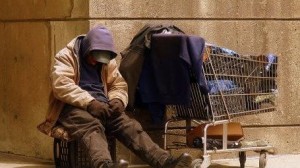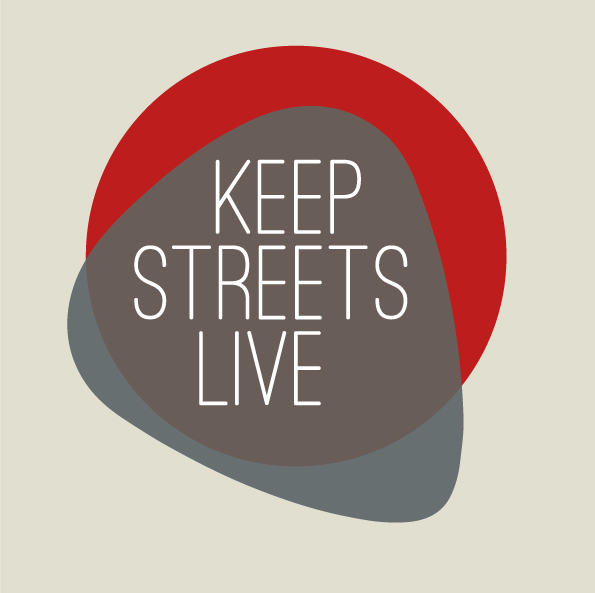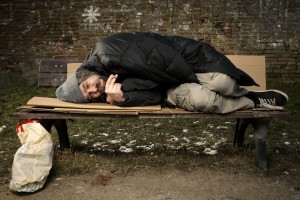KSL Official Response to Exeter PSPO Consultation

 Labour-led Exeter City Council’s new proposed ‘Public Space Protection Order'(PSPO) will give the police and council officers in that city the power to criminalise activities that they deem to be ‘antisocial’ such as rough sleeping, begging, or even busking. These proposals could also see some of the most impoverished people in the UK facing criminal charges and unpayable fines of up to £1000 just for refusing to remove their bedding when ordered to by a council official, or busking ‘without authorisation’.
Labour-led Exeter City Council’s new proposed ‘Public Space Protection Order'(PSPO) will give the police and council officers in that city the power to criminalise activities that they deem to be ‘antisocial’ such as rough sleeping, begging, or even busking. These proposals could also see some of the most impoverished people in the UK facing criminal charges and unpayable fines of up to £1000 just for refusing to remove their bedding when ordered to by a council official, or busking ‘without authorisation’.
The Keep Streets Live Campaign exists to advocate for public spaces that are open to informal offerings of art and music and other community uses. We are against the criminalisation of destitution and homelessness and believe that these plans, whatever the council’s underlying motivation, will have a devastating impact upon some of the most vulnerable people in society, whilst also criminalising cultural activities such as busking. The council are running an online consultation about the proposals which closes at midnight on Febuary 29th, and it is vitally important that as many people as possible complete the consultation and inform the council that these draconian and authoritarian measures do not have public support.
You can complete the online consultation on the council website here:
http://exeter.gov.uk/council-and-democracy/consultations-and-petitions/public-spaces-protection-order-consultation/
We have completed our submission to the consultation and are publishing our response below for the public record. Please feel free to use our response as a reference/guide when you complete your submission. It clearly explains the reasons why we are opposed to this PSPO.
If you can, please take a few minutes and complete this consultation, it will make a big difference, and your voice does matter.
KSL Official Response to Consultation
There are six prohibitions and actions that the council want to include in the PSPO. We will publish the proposals in bold lettering and our response will be in italics.
It is proposed that the PSPO will stipulate:
Person(s) within this area, whilst situated in the street or other public space where the public have access without payment, shall:
1. Surrender any intoxicating substance in their possession to an authorised person on request, if:
a) they are found to be ingesting, inhaling, injecting, smoking or otherwise using intoxicating substances; or
b) they are in possession of such intoxicating substances with the intent of using intoxicating subtances within this area; or
c) the authorised person has reasonable grounds to believe that such person is using or intends to use the intoxicating substance within the said area.
Intoxicating Substances is given the following definition (which includes Alcohol and what are commonly referred to as ‘legal highs’): Substances with the capacity to stimulate or depress the central nervous system.
NO
Whilst these powers could in theory apply to a young couple who had bought a bottle of Prosecco for an impromptu summer picnic on the green, these powers could easily be and will most probably be used to target vulnerable and marginalised persons, such as homeless or vulnerably housed persons, or people with mental health problems. Whilst no one could reasonably object to a person facing enforcement action if their behaviour causes alarm, harassment or distress to others, this measure, in contrast allows council officers to target people solely on the basis that they have ‘reasonable grounds’ to believe that they will use an intoxicating substance within the PSPO area. This power would allow officers to seize legally purchased and unopened bottles containing alcohol, even if the person wasn’t drinking the alcohol at the time. As such, it is an unwarranted interference with the personal freedoms of individuals. Also there is no clear mechanism for an officer to establish beyond doubt that a so-called intoxicating substance has not been obtained lawfully and for a lawful, medicinal purpose. The PSPO creates a blanket power which is open to potential misuse. It would be better for the council and the police to focus upon known individuals whose actual behaviour is having a detrimental impact on the local community. These known individuals could be targeted rather than a blanket power which applies to every person, even if their behaviour is having no detrimental impact on any person.
2. Not urinate in a street or public open space
The term ‘street’ includes any road, footway, beach or other area to which the public have access without payment. It also includes a service area as defined in Section 329 of the Highways Act 1980. Other areas will include parks and retail car parks to which the public have access to without payment.
Exemptions shall apply where a person urinating is making use of an authorised temporary public urinal/toilet has been provided in accordance with any specification issued by Exeter City Council and with its agreement.
Q2.
Do you agree with Proposal 2?
No
Q2.1.
Do you have any comments about Proposal 2? Please write these below
The powers could too easily be used to target vulnerable people who do not have access to public toilet facilities, especially during the nighttime hours. Existing legislation can adequately be used against persons who behave inappropriately, including public urination.
3. Clear away and remove from this area without delay (to the satisfaction of an authorised person) any unauthorised bivouac, bedding or equipment formed in a street together with any associated paraphernalia, when requested to do so by an authorised person and if that person fails to clear away and remove as directed an authorised person may then or on a future date or time confiscate and dispose of any unauthorised bivouac, bedding or encampment found within this area with or without the permission of its owner.
For these purposes, bivouac, bedding and encampment mean any portable shelter used for camping or outdoor sleeping, and include materials used for shelter against the elements, weather or ground.
For this purpose ‘unauthorised’ means without the express written consent of any owner (or any person having control over or an interest in the land in question).
Q3.
Do you agree with Proposal 3?
No
It is highly distressing to see a Labour-led local authority even considering implementing these ill-thought out and authoritarian measures. This measure would make it a summary criminal offence, punishable by a fine of up to £1000 for a homeless person to not immediately remove their sleeping bag, or blanket when ordered to do so by a council officer, and gives the council the power to confiscate and destroy the bedding and possessions of homeless people on the basis that they had the temerity to object to being moved on. The extension of summary powers such as this to the local authority wrongly conflates destitution and lack of housing with ‘anti-social behaviour’. It will cause highly vulnerable people to become less safe and to face criminal sanctions purely on account of having to sleep rough. It means vulnerable people will be subject to potential bullying at the hands of council officers who will have the power to destroy their personal possessions if they don’t comply with orders that might be unreasonable and misconstrued. At a time of rising homelessness it is a disgrace that a Labour-led council in particular should be considering measures that criminalise the most vulnerable members of society and make their lives more difficult in a misguided attempt to sanitise the public spaces of the city. The local authority would do better to urgently address the provision of housing places for those who are inadequately housed and treatment for those suffering from addiction or mental health issues, instead of creating a criminal offence which will be used to marginalise the vulnerable and the destitute.
4.
Not make unsolicited and/or unauthorised request(s) for money (whether expressly requested or impliedly requested by conduct) in a public place from persons not known to the perpetrator.
For this purpose ‘unauthorised’ means without the express written consent of any owner (or person having control over or an interest in the land in question).
No
In common with proposal 3, proposal 4 will impact the poorest and most vulnerable members of society in a disproportionate and manifestly unjust way. The vast majority of people who beg are highly vulnerable and often destitute and are reduced to begging in order to obtain food and shelter. The proposal is world in such a way that even a person who was sat down, without causing any issues to any other person, could face a criminal fine of up to £1000 and a court action which would, in itself, be costly and would in no meaningful way change their behaviour because they would now have a fine that they could not possibly pay, as well as a criminal record which would cause them to be more marginalised and isolated from society. Additionally begging is already illegal under the 1824 Vagrancy Act which gives the police ample powers to seek to prosecute persons for begging if it was deemed to be in the public interest. Instead of giving an enormous range of new delegated powers to council officials which could see a large number of fixed penalty notices given to people with no ability to pay them and a resultant rise in costly magistrate’s court hearings and the mixing up of vulnerable people in the criminal justice system, the council and the police should focus purely on the small minority of people who combine begging with genuinely aggressive and intimidating behaviour and use existing legislation to target those individuals rather than creating a new criminal offence.
This measure as currently worded would also criminalise ‘unauthorised’ busking because playing an instrument or singing on the street could be construed as an implied request for money. This is an absurd outcome, conflating a cultural activity which brings enjoyment and colour to the public spaces of a city, with a criminal, antisocial activity. It would lead to scarce public resources being directed towards the prosecution of people playing music on the street. It is contrary to Home Office advice on the use of Antisocial Behaviour legislation and is also likely to be an infringement of Article 10 rights to Freedom of Expression under the Human Rights Act. It is fundamentally misconceived.
5. Not behave either individually or in a group of two or more people in a manner that has resulted or is likely to result in any member of the public being intimidated, harassed, alarmed or distressed by that behaviour
No,
6. Persons within this area who breach Prohibition 5 while in a group shall when ordered to do so by an authorised officer disperse either immediately or by such time as may be specified and in such a manner as may be specified.
Q6.
Do you agree with Proposal 6?
No
Q6.1.
Do you have any comments about Proposal 5 and 6? Please write these below.
Under the Public Order Act 1986 it is already a criminal offence to behave in a manner which causes Alarm, Harassment and Distress to other people. There are existing powers that can be used to disperse people who are causing antisocial behaviour, including Section 35 dispersal notices which can order a person or persons to leave an area for 48 hours. The PSPO proposal is too broad and does not have enough safeguards. It is also unnecessary. The police and council have no need of this summary PSPO power which would extend the power to criminalise people to ‘authorised officers’ on the basis that they have a’ reasonable belief’ IS LIKELY to result in ANY member of the public being intimidated, harassed, alarmed or distressed by that behaviour. This wording is vague and nebulous and has the effect of extending summary powers to persons without the benefit of the extensive training that police officers undertake before becoming officers of the law. This proposal would allow a person to criminalise a person, or group of people purely because they take a subjective view that their behaviour ‘is likely’ to cause distress to ‘any’ person. This is bad lawmaking and can be rightly construed as an attack on freedom of association. It will radically alter the relationship between local authority officers and the people they are paid to serve and protect. The police and council should use their existing powers to target genuine examples of antisocial behaviour using their existing powers.






